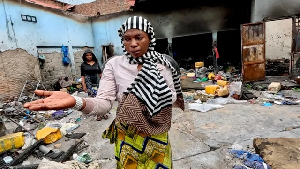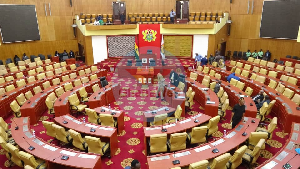The tourism sector within the Northern Region generated about GH¢647,147 in revenue from tourist visits as at the end of the third quarter of 2017, statistics from the Northern Regional office of the Ghana Tourism Authority show.
Out of the amount, the Mole National park generated the highest – GH¢619,731.55 – while the Mognori Eco Village generated GH¢23,096.
The Laranbanga Mosque and other sites within the area contributed GH¢4,320.
In all, 16,312 tourists visited various tourism sites across the region to access various facilities in 2017.
In terms of number of visits to each site, 864 visited Larabanga Mosque and 1,571 visited the Mognori Eco Village, while 13,877 visited the Mole National park.
The majority of visitors were foreigners, with locals making up a smaller portion of the number.
The Northern Region is the largest by land area in the country, and it abounds in numerous tourist sites ranging from wildlife, landmark buildings to hospitability facilities.
Despite this, the region’s potential as a tourism haven in the country and West Africa is still largely untapped and undeveloped.
For instance, Tamale, Daboya, Sabari, Nasia, Mole, Bui, among others, have exotic wild-bird viewing sites, suitable for bird watching pleasure.
Its savannah vegetation is a picturesque beauty, interspersed with rare species of flora and fauna. Baobab trees and ant-hills are also part and parcel of the savannah’s natural topography. Other potential tourist sites can be located in Nakpanduri and other hilly areas of the region, notably the Gambaga Escarpment.
Commenting on the statistics, Northern Regional Acting Manager of GTA Alexander Nketia cited exorbitant prices at the Mole gate as one of the factors deterring local tourists from visiting the sites.
According to him, promotion of domestic tourism and awareness creation is important, as it will go a long way to encourage locals patronise tourism sites.
In order to make tourism attractive and affordable, he advocated that students and Ghanaians in general need to be encouraged to pay a special token whenever they visit tourist sites, so as to boost numbers.
This, he believes, will not only improve local patronage but also increase the sector’s contribution to the national economy.
Business News of Monday, 26 February 2018
Source: thebftonline.com
Northern tourism sector rakes-in GH¢647,147
Entertainment
















